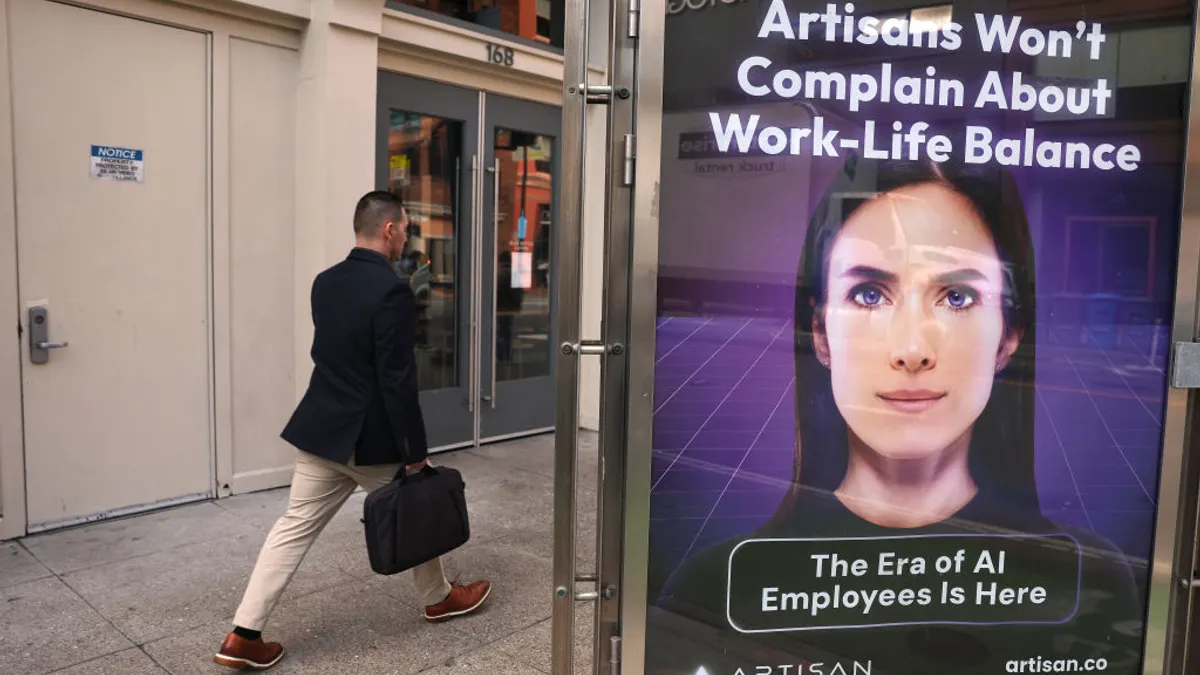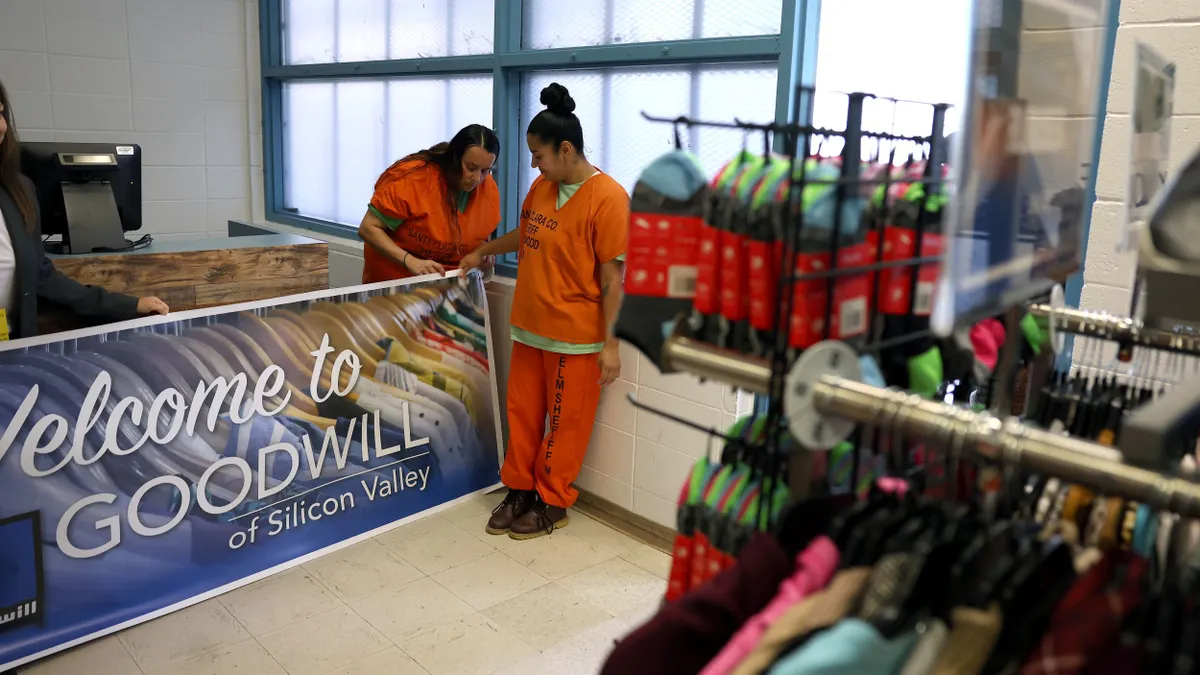In discussions about engagement, talent professionals often talk about whether employees feel "ownership" over their work. Research suggests a strong correlation between agency and job satisfaction. Experts assert workers who "own" their career development are more engaged and past studies indicate that more autonomy leads to engaged workers.
Worker-owned cooperatives operate with this concept at their core. While cooperative work environments are not without business challenges, in at least one recent study a majority of workers on both ends of the political spectrum said they would prefer working at an employee-owned business, according to research co-authored by The Rutgers Institute for the Study of Employee Ownership and Profit Sharing.
"Employee-owned businesses, and co-ops in particular, have so many amazing practices locked up in them that a lot of businesses could benefit from. It could be a gold standard for how to do HR," Melissa Hoover, executive director of the Democracy at Work Institute (DAWI), told HR Dive in an interview. DAWI spearheads education, policy and business development for worker-owned businesses.
Even in situations of low morale or high turnover, HR would have a hard time convincing business owners to hand the keys over to the workers. Borrowing strategies from worker co-ops, however, may create more participatory environments in which employees are happy to engage.
What's a worker-owned co-op?
Most people think of REI (a consumer co-op) or Cabot Creamery (an agricultural co-op) when they hear a business is a cooperative, but only at worker co-ops do workers actually own the business, share the profits and make decisions collectively. Empowering workers is one goal of these types of co-ops, as are efficiency and profitability.
"It's a really common misconception that in a co-op you're all sitting around voting on the color of pencils you're going to use. I mean, you could not run an efficient business if you did it that way," Hoover explained. "In some cases, co-ops are more profit-driven because they're going to be the ones seeing the benefit of it rather than some outside shareholder."
Worker co-ops differ from each other based on size and industry; some small co-ops might make decisions by consensus voting and have a flat hierarchy. Larger co-ops might have a board that votes on big decisions and oversees a traditional management hierarchy. At these co-ops, worker-owners can sit on the board, Hoover said.
"You could be in a position where you're on the board and your manager reports to you, in that circumstance," Hoover said.
At co-ops studied by DAWI, worker-owners have 33% higher median income from wages and their median job tenure is 53% higher. Along with higher earnings for worker-owners, a "commitment to some sort of feedback loop" that actively solicits input is a common denominator among worker co-ops, Hoover said.
The promise of ownership has inspired more workers to start co-ops in the last 15 years or so, Hoover said, especially for caregiving services, like house cleaning, child and elder care, and in the food service and production sectors. Marginalized groups have also formed co-ops in response to feeling locked out of traditional career advancement opportunities, she explained.
"People may not get full hours, they may be stretched," Hoover said. "People are forming cooperatives to protect themselves from that kind of thing in the most extreme cases."
An engaging work arrangement
There are lessons to be gleaned from business strategies commonly associated with a co-op model. For some worker-owners, feeling valued at work and seeing personal values reflected in the workplace results in greater job satisfaction.
When Joseph Cureton, chief coordinating officer of the Staffing Cooperative, helped establish Core Staffing, a staffing collective of formerly incarcerated worker-owners, he said the team voiced that staffing work often makes workers feel disposable or powerless. To address this, they decided to form the business as a collective and to take out a lower bill rate for the client work, allowing worker-owners to take home more of what they brought in.
"We end up paying our members more because we don't have an extractive ownership class," he told HR Dive in an interview. With the model they chose, more money made it directly into workers' pockets, he said. Worker-owners at Core Staffing take on additional work for the cooperative — managerial tasks, recruiting and training work — because they feel invested in the business, Cureton said.
Other co-ops make worker-owners feel valued by flattening their hierarchies or sharing the grunt work. Real Pickles, an organic pickle manufacturer that was converted into a cooperative model in 2013, ensures that worker-owners with office jobs help out in the kitchen.
"Most of us work in the kitchen, even if it's just a couple hours a week," Annie Winkler, a worker-owner and former board member in charge of HR at Real Pickles, told HR Dive in an interview. "Everybody does here. We have a really excellent crew of folks who really care about what we do."
For McKenzie Jones, a project manager and hiring team member at CoLab, a cooperative web development agency, promoting a collectivized work model is a big part of the mission.
"Because everyone's sharing the risk, everyone's got more at stake," Jones told HR Dive in an interview, "and therefore we're more invested in the success of the coop."
Having a vested interest improves workers' day-to-day performance and improves retention, Winkler and Jones said. In DAWI's research, Hoover has seen significant retention for worker-owners performing caregiving labor, as well.
"In the caring economy and in jobs where your work is to care for other people, the more you care about your job, the better you'll be at it," she said. "We have seen really just off-the-charts retention in high-turnover jobs in customer satisfaction, in child care and home care cooperatives because people are a little more invested. They themselves are better cared for by their workplace."
Putting participation in place
Practicing open-book management, Hoover said, is one way talent professionals can encourage more meaningful employee participation in a nod to co-ops.
Open-book management involves three processes: It solicits employee input about their work; shares information, including financial information, with workers in something like a boiled-down, quarterly report; and rewards workers, sometimes with bonuses or profit-sharing, based on how well the organization hits benchmarks for profitability.
"All the benefits of worker coops, and of employee ownership more broadly, really come from that magical combination of three things," Hoover said, "and any workplace can do those three things and see the same benefits, which is higher worker retention, higher satisfaction, more engagement — it's just a question of doing it in good faith and making it a worker-centered approach."
Open book management is distinct from a "continuous improvement" management style, which might pressure workers to meet goals without much transparency or any rewards, Hoover said. Constantly adjusting processes to better hit goals and suit workers' needs can be more time-consuming and complicated, but it can yield better results, Jones said.
"Complicated isn't necessarily a bad thing, it just requires more research, more planning, more conversations, more compromise," she said, "[and] when you invest that much time in something, it tends to be better."




















